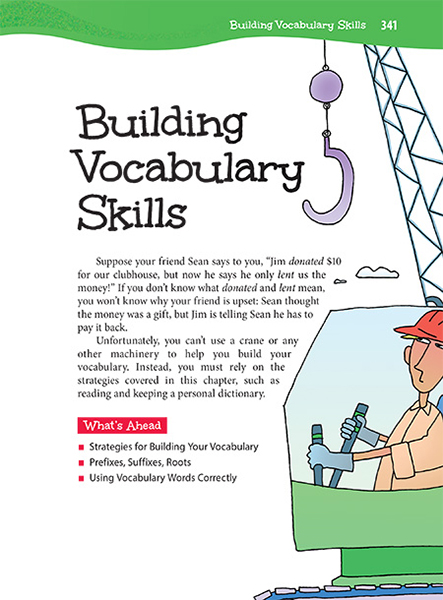Page 341 from

Start-Up Activity
Ask your students if they know what the main part of a word is called (the root). Every root has its own special meaning. Write the following roots on the board and ask students to write words that contain them and define each word as best as they can:
- bio (life)
- geo (earth)
- mem (remember)
- therm (heat)
Afterward, explain that the parts that come before and after a word's root can change the meaning drastically. Just consider the difference between friendly and unfriendly.
Note that this chapter includes a list of common word parts, which your students can use to understand unfamiliar words and build their vocabulary. The chapter also includes many other strategies for learning the meaning of words.
Think About It
“Today, English is believed to have the most words of any modern language—and it’s still evolving.”
—Patricia T. O’Conner

Start-Up Activity
Ask your students if they know what the main part of a word is called (the root). Every root has its own special meaning. Write the following roots on the board and ask students to write words that contain them and define each word as best as they can:
- bio (life)
- geo (earth)
- mem (remember)
- therm (heat)
Afterward, explain that the parts that come before and after a word's root can change the meaning drastically. Just consider the difference between friendly and unfriendly.
Note that this chapter includes a list of common word parts, which your students can use to understand unfamiliar words and build their vocabulary. The chapter also includes many other strategies for learning the meaning of words.
Think About It
“Today, English is believed to have the most words of any modern language—and it’s still evolving.”
—Patricia T. O’Conner



